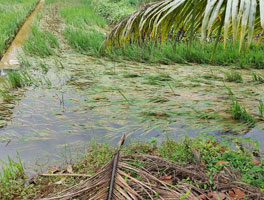 |
Dear readers,
Welcome to the Climate Weekly newsletter by CSE’s Climate Change programme, and Down to Earth (DTE).
A new civil society report has urged the United States to fulfill its climate commitments equitably through a proposed $446 billion grant-based funding plan. The report, titled United States of America Fair Shares Nationally Determined Contribution (NDC), calls for a phase-out of oil and gas in the US as part of its NDC, which is due in February 2025. It outlines that the $446 billion should be allocated with $106 billion for mitigation funding and $340 billion for adaptation, as well as for loss and damage, by 2030. Fair Share NDCs are based on equity, applying the principle that a country’s responsibility for climate action is determined by its historical emissions and its capacity to act. In light of this, it states that the US’s fair share would require emissions reductions equivalent to 203 per cent below 2005 levels—approximately 14 billion metric tonnes of carbon dioxide equivalents—to keep global temperatures below 1.5°C above pre-industrial levels. The report indicates that the US must reduce its domestic emissions by 80 per cent, or 6 billion metric tonnes, from 2005 levels by 2035. Further, it recommends that oil and gas production in the US should end by 2031 to give the world a 66 per cent chance of limiting global warming to 1.5°C, with fossil fuel subsidies phased out by 2025 to accelerate the transition.
In the broader context of global climate finance, negotiations ahead of COP29 ended in deadlock as negotiators gathered in Baku to discuss the New Collective Quantified Goal on Climate Finance (NCQG). Key issues, such as the amount of funding, the expansion of the contributor base, and equitable access, remain unresolved. The Global South emphasized the need for grants over loans, while developed nations proposed expanding the role of private finance. Upamanyu Das of the Climate Change Programme at CSE writes that the upcoming summit in Baku will need to address these differences to finalize a workable climate finance goal, especially with the pressing demands from vulnerable regions like Africa and small island states.
Finally, the second Needs Determination Report (NDR) by the UNFCCC was recently released. It estimates that developing nations will require up to $5-$6.8 trillion by 2030 to meet their climate goals.
|
|
 |
| |
 |
|
| |
 |
 |
| |
By - Trishant Dev
Climate Change, CSE
|
| |
|
 |
|
|
| |
 |
|
| |
| EXTREME WEATHER TRACKER |
| |
Climate change poses double whammy for Bihar — floods in 5 districts despite 26% rainfall deficit across state, 18 September 2024
|
 |
 |
|
|
| |
 |
|
| |
 |
 |
Another day, another record: August 2024 registered as Earth’s hottest August in 175 years, 17 September 2024
|
|
|
| |
|
|
| |
|
|
| |
 |
|
| |
|
|
| |
|
|
| |
|
|
| |
 |
|
| |
|
|
| |
 |
|
| |
|
Trade on emissions, 16 September 2024
|
 |
|
EU’s Carbon Border Adjustment Mechanism (CBAM) would hurt developing countries’ export earnings, while enabling developed nations to overlook their climate responsibilities
|
|
|
| |
 |
|
| |
CLIMATE NEWS | SCIENCE| IMPACTS| POLITICS |
|
| |
 |
|
| |
|
|
| |
 |
|
| |
|
|
| |
 |
|
| |
|
|
| |
 |
|
| |
|
|
| |
 |
|
| |
|
|
| |
 |
|
| |
|
|
| |
 |
|
| |
|
|
| |
 |
|
| |
|
|
| |
 |
|
| |
|
|
| |
 |
|
| |
| Events |
|
Online Training Course |
| |
|
|
|
|
|
|
|
|
| |
|
|
| |
|
|
| |
|
|